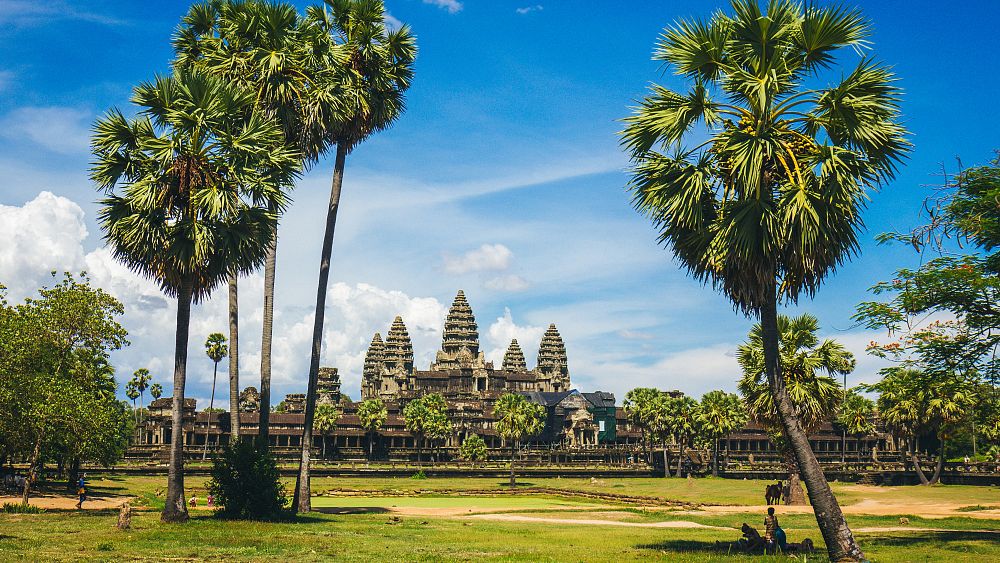Human rights group Amnesty International has strongly criticized UNESCO over the Cambodian government’s mass evictions at the famous centuries-old Angkor Wat temple.
The London-based organisation said the UN body failed to challenge the expulsion of an estimated 10,000 families.
In a report released on Tuesday, Amnesty International claims that the evictions by Cambodian authorities violated international and national law.
It said the evicted people have received little or no compensation and the government’s two main resettlement sites have inadequate facilities including roads, water and electricity supplies and sanitation.
The Cambodian government have been seeking to boost tourism at the heritage site since the pandemic lull and has used the need to prevent damage to the ancient temple as an excuse for the expulsions.
Human rights groups say UNESCO should be taking a stand
The report accused UNESCO and its World Heritage programme of disregarding UN guidelines.
In particular, the organisation failed in its obligation to intervene and promote the human right to housing, Amnesty International claims.
The Cambodian government used the fact that the World Heritage site needed protection from damage as a reason for moving people away from it.
Because of this, Amnesty says UNESCO should be taking a stand against the actions of the authorities.
The UNESCO World Heritage Center reportedly said that it “does not have the ability to enforce implementation of rights-based standards and policy recommendations as our role is rather focused on policy advice, capacity building and advocacy.”
Why families are being evicted from around Angkor Wat complex
Angkor Wat was granted World Heritage status in 1992, in part because of fears that the growth of human settlements on the site posed a possible threat to its preservation.
However, the designation was not clear regarding existing settlements, which until last year were left mainly undisturbed, according to the report.
Cambodia is now keen to develop the area for tourism, which lapsed during the coronavirus pandemic, including evicting nearby inhabitants.
“Cambodian authorities cruelly uprooted families who have lived in Angkor for several generations, forcing them to live hand to mouth at ill-prepared relocation sites,” said Montse Ferrer, interim deputy regional director for research at Amnesty.
“They must immediately cease forcibly evicting people and violating international human rights law.”
The report says Cambodian authorities claim that the villagers are moving out of the site voluntarily.
But Amnesty’s research earlier this year, including interviews with more than 100 people, established that “almost all described being evicted or pressured to leave Angkor following intimidation, harassment, threats and acts of violence from Cambodian authorities.”
“Nobody wants to leave their home,” it quoted one woman, who had lived in Angkor for more than 70 years, as saying.
Evictions impact the busy tourism trade
In addition to inadequate facilities provided at the resettlement camps, their locations - almost an hour by motorbike from Angkor - also make it hard to make a living.
Many had earned an income by supplying goods and services for the busy tourist trade at Angkor Wat. Those who engaged in farming say their new location has not been prepared for the activity.
“Cambodia is obligated under seven major human rights treaties to respect, protect and fulfil the right to adequate housing," the report said.
It added that Cambodian officials have dismissed Amnesty's research and inaccurately accused it of reaching conclusions “thousands of kilometres away from the real situation."
Amnesty said at least 15 of the families it interviewed were told by the government that they had to move to preserve Angkor's World Heritage status.
It quoted a speech that then-Prime Minister Hun Sen gave last year saying the site risked losing the designation unless they moved away, and those who did not do so voluntarily would get no compensation.
Under his authoritarian rule, such remarks were tantamount to official policy.


